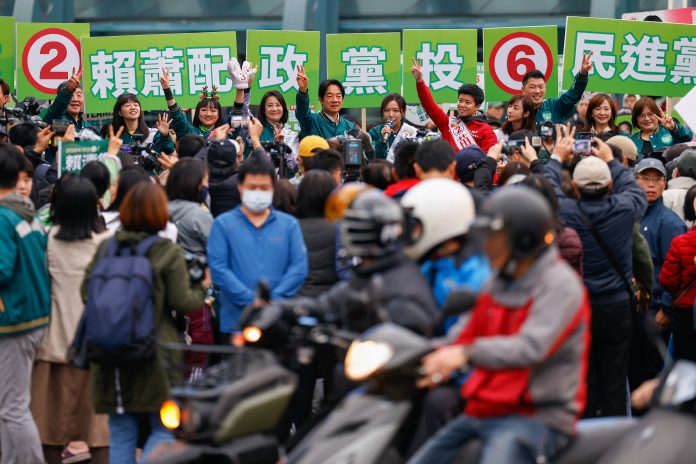
BEIJING/HONG KONG. – The arms race across the Taiwan Strait and Chinese military pressure against the island Beijing claims as its “sacred” territory is unlikely to end no matter who wins Taiwan’s closely watched elections.
China has cast the Jan. 13 presidential and parliamentary elections as a choice between war and peace, warning an attempt to push for Taiwan’s formal independence means conflict.
China has focused its anger in the run-up to the vote on Lai Ching-te, the ruling Democratic Progressive Party’s (DPP) presidential candidate, rebuffing his calls for talks as it views him as a separatist.
Both the DPP and Taiwan’s largest opposition party, the Kuomintang (KMT), say only they can preserve the peace, and both have also committed to bolstering Taiwan’s defenses and say only the island’s people can decide their future.
The KMT traditionally favors close ties with China although it denies being pro-Beijing.
Wang Zaixi, a deputy head of China’s Taiwan Affairs Office between 2000 and 2006 and a retired Chinese army major general, was quoted last month in China’s Global Times newspaper as saying the DPP’s Lai was an “extremist” independence supporter.
“If he is elected, you cannot rule out the possibility of a military clash across the Taiwan Strait. We need to be fully aware of this,” Wang said.
Such an outcome could have grave geopolitical and economic outcomes, pitting China against the United States – the world’s two leading military powers – while blocking key shipping lanes and disrupting semiconductor and commodity supply chains.
“I believe they will take more hawkish actions to try to warn the new president over his future policies towards China,” Admiral Lee Hsi-ming, a former Taiwan military chief.
Western security officials are trying to gauge how serious China could be about a military response to the election outcome.
One official, speaking on condition of anonymity as they were not authorized to speak to the media, said Beijing may wait and see, with any strong reaction coming after May 20 when the next president takes office and gives an inauguration speech.
If the DPP wins the presidency but loses its majority in parliament, that could also temper China’s response given it would weaken the DPP’s ability to pass legislation, the Western official added.
China’s defense ministry, which has decried Taiwan’s government for deliberately “hyping up” a military threat from China for electoral gain, did not respond to a request for comment.
Taiwan defense ministry spokesperson Sun Li-fang told reporters its assessment of China’s moves would not be based on whether there is an election or not.
“We’ll look at the signs and what the enemy is up to as a basis for our judgment,” he said.
































